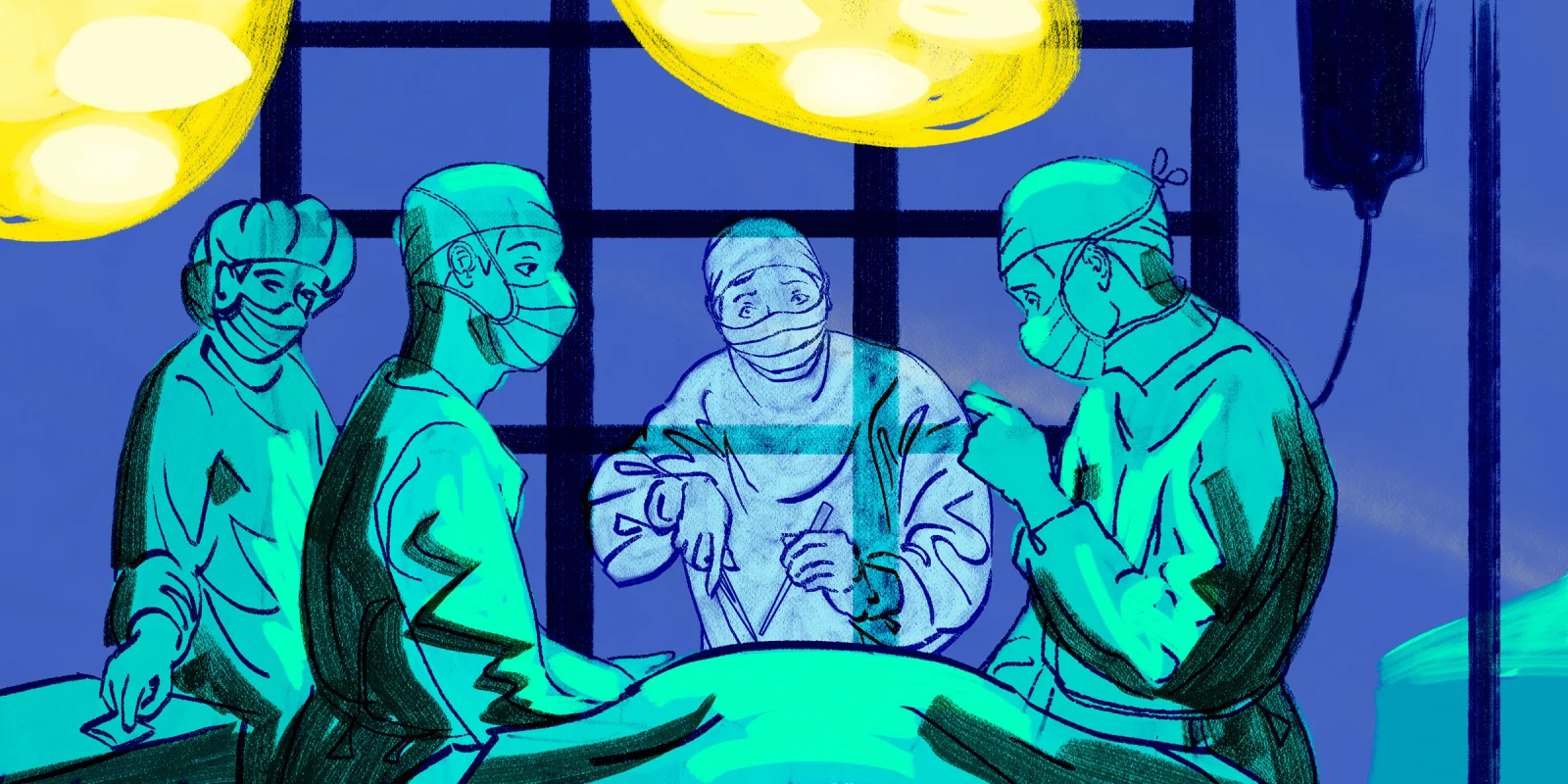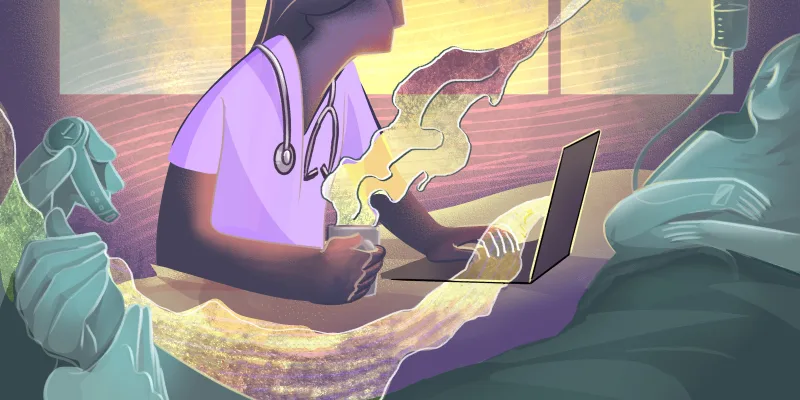In fall 2021, Doximity ran our first ever Women in Medicine essay contest. We are happy to announce this as the winning essay.
My “win” is a tale of how I am pushing back on the chronic “invisibility” I have had in my new position. Much of the past 12 months have been a blur for me. I settled into a new job, and my family into a completely different way of living in a different part of the country. The last thing I expected in this huge transition was the struggle I have faced to just be recognized as a surgeon. My new institution did take steps to introduce me as the surgical director of a clinical program, but despite these introductions, for the past year, I have been the “object of misidentification” over and over.
I get confused for a nurse in the pre-operative area at least once a month. Anesthesia staff have refused to start cases because they didn’t recognize me as the attending surgeon. In the PICU, the critical care attendings ask, “When is surgery getting here to start rounds?” even though I am standing right in front of the individual (with my badge on) asking the question. When my program ordered lunch to celebrate a beloved team member’s retirement, I was forgotten — even though the male surgeons were not. I could go on with examples, each one a fiber in a tapestry that has long shown a picture of how academic medicine still marginalizes women.
One might dismiss every instance above as an individual one-off, and not a collective sum of experiences that begins to frame a chronicle of how my new institution really sees and values me and other women. It could be argued there’s nothing to “win” here — maybe I just need to “toughen up.” I disagree. There are successes and sharing these stories can validate other women’s experiences. It changes the collective narrative. The wins come in micro-seconds, in interactions where I see an opening to push back and change the narrative.
I don’t have the energy to correct being mis-identified every single time. Most of the time, I laugh it off.
“It’s OK,” I'll say. “I know we haven’t met.”
Or, I give a soft chuckle when someone says I look like a surgical fellow with my 46-year-old fine lines around my eyes and streak of gray hair. I prioritize others’ comfort over my desire to be seen for who I am.
An important win for me came last week. I was in the OR, fighting for the life of a 5-year-old in a high-risk case. I started the case with a surgical fellow. The medical specialty fellow, another young woman, was standing behind me on risers, observing. Even though the stakes were incredibly high, things were going well.
My chief arrived, and scrubbed in. It was reflexive and familiar as he took over the case. He began to lead the dissection I had been carrying out safely and efficiently, and my fellow was bumped out of the way. My frustration bubbled up, and I began an all-too-familiar negative narrative with myself.
He always does this to me.
I’m never going to succeed here.
Does he think I can’t do this operation?
In the past, I would accept his quiet demotion and the ensuing vortex of negative thoughts. However, this time I kept asserting myself, and he responded. He started helping me, instead of me assisting him. I wasn’t certain if, in this perilous case, he would respond, but he did.
We reached a lull in the operation, and the scrub asked my chief if she could take a break. He assented to her request.
I hesitated. This was another clear erasure of my role in the OR as the attending of record. The self-gaslighting began again.
She just knows him better.
She’s deferring to his seniority.
You don’t want to give people a reason to think you’re difficult.
Quashing these thoughts, I decided on humor and light-heartedness.
“You know, Olivia, in case you were wondering, it’s OK with me, too, if you take a break.” I put a smile in my voice. After a second, Olivia laughed, and said, “Oh my goodness, that was so rude of me. Is it OK with you if I take a break?”
“Absolutely,” I replied.
The operation continued. I had avoided hostility while asserting my role in the OR, with my chief and the OR staff.
Our patient was not able to have the final part of his operation done that night. He needed time in the ICU to stabilize. We finished this last stage later. Olivia and my chief were again assisting me. This time, there was no ambiguity about the different roles in the OR. I was relaxed and confident.
What about the medical fellow, who was observing the entire case? When I had recovered, I realized I had received a text from her: “…it’s incredible the stamina, skill, and composure you have. And I especially liked your response to the scrub. 100% very empowering moment on a whole separate level, really amazing!”
In those challenging moments, I had been mentoring.
My victory was not just over an environment of microaggressions, but over my own negative self-talk. I found the script that worked to quietly correct a colleague while preserving the atmosphere in the OR. I was modeling valuable behavior for a trainee. I shed invisibility by being an authentic person who values respect for others and myself. These small acts of compassionate correction make a difference.
I am not naive enough to say that I have once and for all banished negative self-talk from my psyche. But I do know that the work done this past week lays a new pathway for my brain. The next time, I will be more ready to respond in a way that creates positive change. Each “win” adds to the tools we have to dismantle inequity in medicine: not just for women physicians, but for our patients and colleagues in other disciplines and those whose identities have other intersections with marginalization.
How do you fight being invisible? Share in the comments.
The author is a pediatric specialty surgeon who wishes to remain anonymous. She's also a mother of three children and is a loving spouse. She is passionate about advocating for children and mentoring students and trainees.
All names and identifying information have been modified to protect privacy.
Illustration by Jennifer Bogartz




